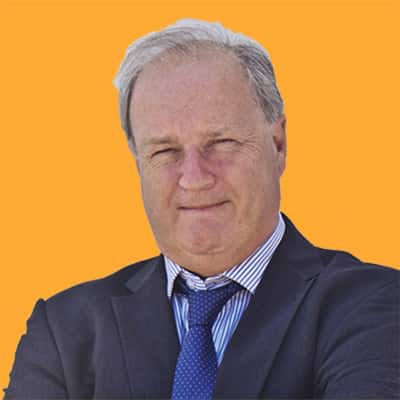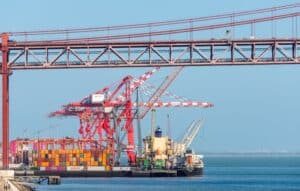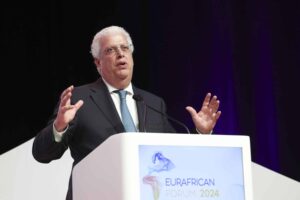Back in my early 20s, I came across a very useful financial insight from an unexpected source. A lady had written to a newspaper’s motoring correspondent to complain that her son had saved hard to buy a car that was essential for his job. A disqualified driver with no car insurance and no means of providing adequate compensation had driven into the car leaving it a wreck. The police seemed uninterested in her son’s plight.
The journalist, while commiserating, replied that the authorities had long ago worked out that it was pointless pursuing the poor or the rich since the former did not have any money and the rich could always afford expensive lawyers to pursue legal loopholes – or simply move to another country. The law-abiding middle classes were, however, sitting targets, a cash cow that governments target ruthlessly to raise revenues.
Given the huge increases in government debt that we have seen over the past decade as a result of the global financial crisis and now the Covid-19 pandemic, the middle classes can expect to see their tax burden increase significantly over the next few years and stay there for many decades to come.
However, advances in technology, which mean you can work anywhere in the world with a good broadband connection, and increasing tax competition between states, suggest that the opportunities to escape or at least weaken the taxman’s grip are increasing.
Thousands of people from across the world have certainly taken advantage of Portugal’s Non-Habitual Residency (NHR) scheme, first implemented in 2009, to reduce their tax liabilities.
Successful applicants benefit from a) a 20% flat rate, applicable to employment and self-employment income obtained in Portugal; plus (b) the application of a 10% tax on foreign pension income; and (c) an exemption on other foreign source income and earnings, provided they may be taxed outside of Portugal under the applicable tax conventions or the OECD model (if not a tax heaven) or, in case of employment income, that it is effectively taxed in the source country.
The tax advantages to individuals are clear, while Lisbon has benefitted from increased tax revenues and the immigration of people with scarce and valuable skills as well as investors.
European ‘rivals’
The success of the NHR has not gone unnoticed. Greece has now introduced a triple set of tax incentives targeted exclusively at foreign tax residents who are considering moving to the country. According to the Greek newspaper Ekathimerini, Athens is targeting “high net worth individuals, retirees wishing to spend time in Greece, expats – including the ‘brain drain’ generation – and the ‘work from anywhere’ crowd”.
Those who qualify can take advantage of an attractive flat 7% final tax for 15 years.
Moreover, the Greeks added a further incentive in January, namely a 50% income tax break on Greek-sourced salaries for qualifying executives, employees, freelancers and other entrepreneurs who relocate to – and work from – Greece. This, says Ekathimerini, is “an ambitious attempt to reverse Greece’s brain drain, lure expatriates and experts in the digital field, reduce the payroll cost for foreign investors setting up new activities in Greece, as well as address post-Brexit immigration needs.”
Portugal is a beautiful country, but the appeal of moving to a Greek island in the blue Aegean Sea and potentially paying a lower tax rate for an extra five years cannot be denied.
Moreover, there are other options in Europe. In 2019, Italy extended and broadened the scope of its special tax regime which allows foreigners, whether they be employees, freelancers or retired, to come to Italy and enjoy a relatively low tax rate on their worldwide income. Qualifying individuals will not have to pay tax on 70% of income from freelance work, employment or a pension for five years. That is just one of the tax breaks and advantages of the new regime.
Tropical taxbreaks
But maybe you want to enjoy hot weather year-round, very low tax rates and lead a life of comparative luxury. How about Southeast Asia?
The Malaysia My Second Home programme (MM2H), introduced back in 2002, allows foreigners to stay in Malaysia for a period of 10 years. Qualifying individuals are exempt from tax on foreign source pensions and income. The programme is currently suspended because of the Covid-19 pandemic and is being reevaluated. It is likely to reopen this year, possibly with some changes.
MM2H has proved very successful in attracting tens of thousands to the English-speaking country in Southeast Asia that benefits from a variety of fascinating cultures (Malay, Chinese and Indian), an infrastructure that compares well with many western countries, including Portugal, a low crime rate, and excellent educational facilities.
Moreover, living costs are extremely low. You can rent a luxury apartment in a condominium with a swimming pool and gymnasium in Kuala Lumpur or Penang from a few hundred dollars a month, energy costs are extremely low and you can eat out for a few dollars. Hire a maid to look after you and your condo for a couple of hundred dollars a month and you don’t even have to cook, clean or do the laundry.
Or you could decide to settle in Thailand. Those over 50 can apply for a retirement visa, which allows you to live in the kingdom and you won’t have to pay tax on your pension or any other foreign-sourced income. It is renewable annually.
Indonesia and Cambodia also offer retirement visas that offer tax advantages and allow their holders to live a life of luxury on a relatively modest income.
The message is clear. Taxpayers are no longer sitting ducks. The Portuguese and other governments will have to up their game if they are to keep attracting the digital nomads of the 21st century.
By Anthony Beachey
|| features@algarveresident.com
Anthony Beachey is a former BBC World Service journalist now working on a freelance basis in Portugal, where he specialises in economics and finance.



















